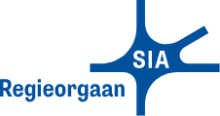- Home
- Research
- Professorships
- tourism impacts on society
- towards resilient leisure tourism and hospitality ecosystems in europe

Towards resilient leisure, tourism and hospitality ecosystems in Europe
The project ‘Towards resilient leisure, tourism and hospitality ecosystems in Europe’ aims to shift the industry’s focus to long-term sustainability, addressing systemic constraints and facilitating a transition that aligns with European priorities for a sustainable and just future.
What is the goal of this research?
The overarching aim of the project is to contribute to the development of a sustainable, inclusive and just EU leisure, tourism and hospitality ecosystems, and will be achieved through three interrelated objectives:
- Create a body of knowledge and theoretical foundations, related to the application of land, capital and financial resources, to develop resilient and future-proof tourism destinations and tourism and travel businesses;
- Develop conceptual models that contribute towards collective models of resilience in tourism destinations and tourism and travel businesses and are based on equitable use of labour, land and natural resources and financial capital;
- Propose, through approved EU funding, interventions and applications towards new models of tourism destination management and corporate governance, that use sustainable parameters of success (regeneration of biodiversity and nature, improved human welfare of residents at destinations, social and environmental returns).
The Project will lead to a series of research proposals that allows the consortium partners to address urgent societal challenges in Europe. During the project timeline, partners will disseminate findings and search for engagement by public and private actors. Ongoing collaboration and knowledge exchange with key industry actors will improve the resilience capacity of destinations through education, skill development, and co-creation of knowledge.
The project supports international collaboration by facilitating university staff mobility and involving students with diverse cultural, industry, and academic backgrounds and experiences. The successful application and completion of the project will strengthen the consortium's capacities and facilitate the ongoing international dialogue through the Resilient Tourism Ecosystems Lab (RTEL), consequently leading to future collaborative EU grant applications.
What method is employed?
Through four networking events, the project will broaden and strengthen collaborative networks with policymakers, professionals and academics within Europe, develop innovative research methods and new modalities of research co-production with non-academic partners.
Through RTEL and collaborative action research, it will gather new theoretical insights that will help restructuring travel and tourism business operations in Europe. These insights will be tested through further European research collaboration, while searching for new models of economic interaction and trade and piloting case studies in European tourism markets.
What findings are we hoping for?
The project hopes to build sound transdisciplinary scientific foundations supporting the design and testing of models of tourism destination stewardship and resilience.
In addition, the project will develop proposals of alternative ways of resource distribution and use in tourism (land, labour and capital), allowing tourism destinations to further develop in a less exploitative and more balanced, just and ethical manner.
Who is the Project Team?
- Dr Jelena Farkic, Academy for Tourism, Breda University of Applied Sciences – project lead (tourism destination governance, destination and community wellbeing)
- MSc Jos van der Sterren, Academy for Tourism, Breda University of Applied Sciences (circular economy, financial inclusion)
- Dr Rami K. Isaac, Academy for Tourism, Breda University of Applied Sciences (Tourism planning & development, governance & policy)
- Dr Andrew Mzembe, Academy for Hotel and Facility, Breda University of Applied Sciences (sustainable innovation, social entrepreneurship and corporate governance)
What is the timeline of this project?
1 January 2025 - 1 January 2027
Who are our main collaborating partner(s)?
- Dr Henna Konu, University of Eastern Finland
- Dr Claudio Milano, Autonomous University of Barcelona, Spain
- Dr Raoul Bianchi, Manchester Metropolitan University, UK
- Dr Dimitri Ioannides, Mid Sweden University, Sweden
- Dr Steve Taylor, University of the Highlands and Islands, UK
Who are our funding partners?

https://regieorgaan-sia.nl/taskforce-applied-research-sia/
Want to read more?
Interested in other publications?
BUas uses Pure for all research publications; the up-to-date overview of all BUas knowledge output.